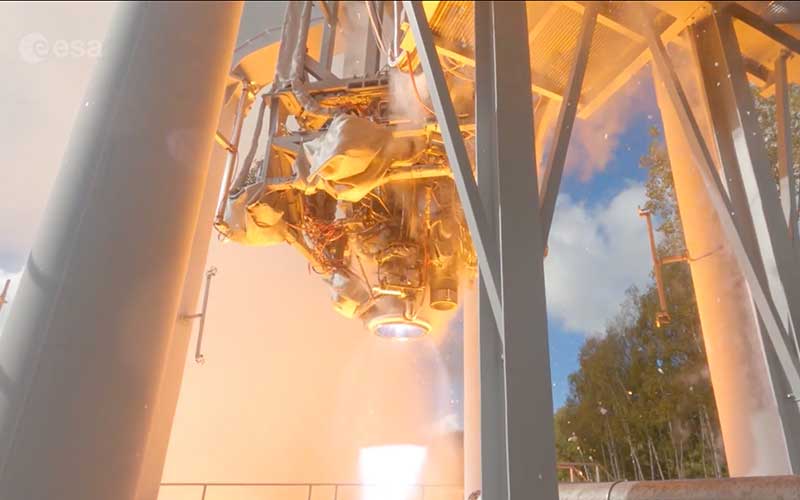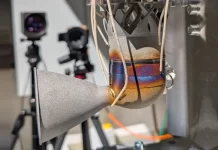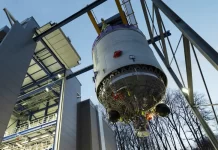
ArianeGroup completed a successful hot fire test of the Prometheus rocket engine in late December 2024. The engine is being developed under a European Space Agency (ESA) contract and is designed to power reusable rockets.
In his initial address during the annual press briefing on 9 January, ESA Director General Josef Aschbacher stated that a “very important” test of the Prometheus rocket engine had occurred just before Christmas last year.
In response to questioning from European Spaceflight, an ESA spokesperson revealed that the test had taken place on 19 December on the PF20 test bench at the ArianeGroup facilities in Vernon, France. The goal of the test campaign was to “accumulate engine cycles and operational runtime and to test the behavior of the engine and its various subsystems under various thrust profiles.” It was also used as a means to de-risk an upcoming test campaign that will be performed on the P5 test bench at the DLR testing facilities in Lampoldshausen, Germany.
The ESA spokesperson stated that the 19 December hot fire test of the engine, which was powered by liquid oxygen and biomethane, ran for its “intended duration” of 41 seconds.
“The results were satisfactory, with the engine reaching 100% of its nominal thrust as planned.
This successful test has confirmed the engine’s reliability, allowing the demonstration to proceed confidently with its further optimization.”
Prometheus is slated to initially power the Themis reusable booster demonstrator, a project also being developed by ArianeGroup under an ESA contract. A Themis demonstrator equipped with a single Prometheus engine is expected to complete an initial hop test campaign at the Esrange Space Centre in Sweden later this year.
In addition to its use aboard Themis, Prometheus will also be utilized by ArianeGroup subsidiary MaiaSpace to power its partially reusable Maia rocket. The rocket will feature four Prometheus engines: three powering its first stage and a vacuum-optimized variant propelling its second stage. MaiaSpace is currently targeting 2026 for the inaugural launch of Maia from the old Soyuz launch facility at the Guiana Space Centre, which the company is renovating to suit its needs.




